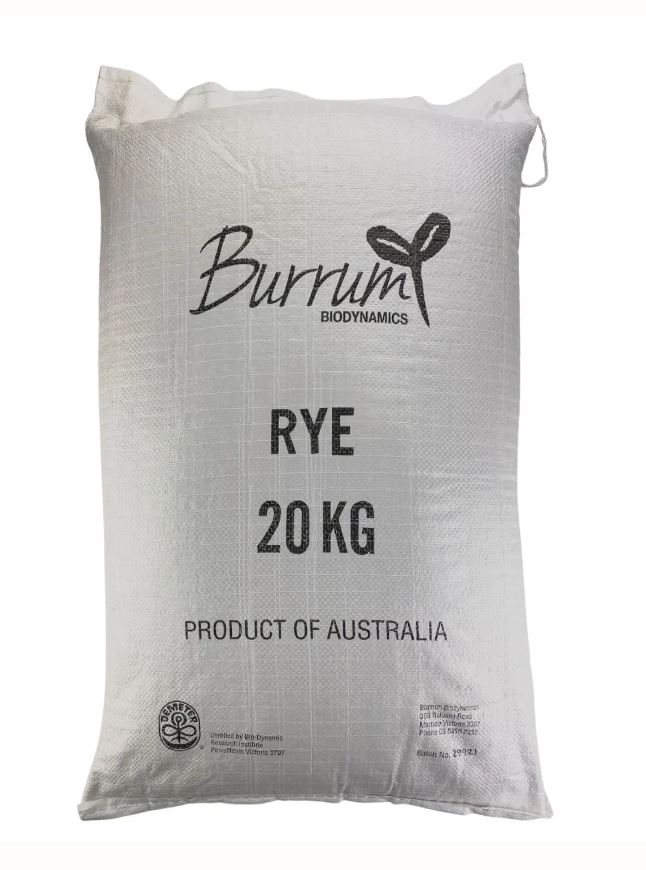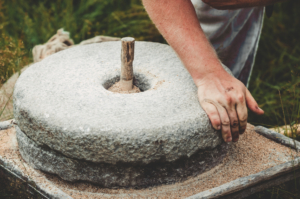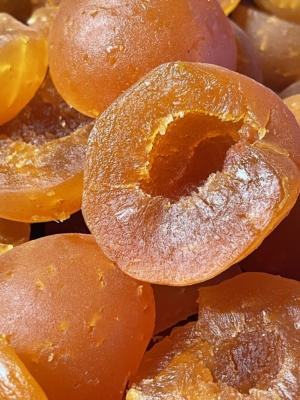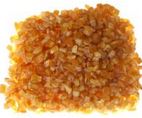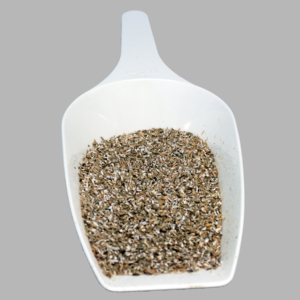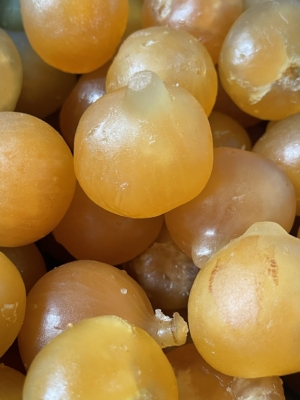Whole Rye Grain
Discover the robust and nutritious benefits of our Whole Rye Grain, biodynamically grown in the rich soils of the Wimmera region of Western Victoria by Stephen and Tania Walter at Burrum Biodynamics. This hearty grain is a testament to sustainable farming practices and a commitment to preserving the health of the land.
Why Choose Our Whole Rye Grain?
This rye grain is not just any grain—it’s the result of years of dedication to biodynamic farming. Before 2000, Stephen and Tania Walter were engaged in conventional farming methods, heavily reliant on chemicals. However, seeking a more sustainable and health-conscious approach, they transitioned to biodynamic farming. As Tania puts it, “Going biodynamic gave us a way out of the chemical treadmill” and “we wouldn’t go back to conventional farming in a million years.”
The Walters achieved Demeter “In-Conversion” status in 2005 and proudly earned full Demeter Biodynamic Certification in 2008. Their farming approach is holistic, incorporating crop rotation with legumes like lentils, peas, and faba beans to naturally enrich the soil with nitrogen. This is followed by resting periods to allow the soil to rejuvenate, a process that involves meticulous planning, green manuring, and cover cropping to manage weeds without synthetic inputs.
Versatile Uses:
- Grinding: Perfect for grinding your own flour, this rye grain is ideal for heavier-style winter breads, providing rich flavor and nutrition.
- Sourdough Boost: Give your sourdough culture a revitalizing boost with the robust qualities of this rye grain.
- Cracked Grain: Crack the grains in your food processor, soak, and add them to your loaves for added texture and wholesome goodness.
- Sprouting: Also fantastic for sprouting your own fresh, nutrient-packed rye grass at home.
Choose Whole Rye Grain from Burrum Biodynamics and embrace the difference of biodynamically grown, nutrient-rich grains that support both your health and the health of the planet.
More Uses for Whole Rye Grain
- Fermentation Starter: Whole rye grain can be used to create a fermentation starter for sourdough bread or other fermented foods. The natural yeasts present on the grain's surface help to kickstart the fermentation process, giving your sourdough that distinctive tang and robust flavor.
- Rye Berries in Salads: Cook the whole rye berries and use them as a hearty base for salads. Their chewy texture and nutty flavor make them a great addition to grain salads, mixed with roasted vegetables, herbs, and a tangy vinaigrette.
- Rye Porridge: Cook whole rye grains into a creamy porridge for a nutritious breakfast. You can soak the grains overnight to reduce cooking time, then simmer them with water or milk until they reach your desired consistency. Top with fruits, nuts, and honey for a wholesome start to your day.
- Brewing: Rye grain is used in brewing beer, particularly in creating rye ales and rye IPAs. It adds a distinct, spicy flavor to the brew, which can complement a wide range of beer styles.
- Rye Crackers: Use whole rye grain flour or cracked rye to make homemade crackers. The dense, slightly sweet flavor of rye pairs well with seeds, herbs, and a sprinkle of sea salt, making for a tasty and healthy snack.
- Rye Pilaf: Cook whole rye grains as you would rice or quinoa, and use them as a base for pilaf. Mix in sautéed onions, garlic, herbs, and spices, then stir in vegetables or protein for a satisfying, nutrient-rich meal.
- Pet Food Additive: Incorporate cooked rye grains into homemade pet food. It's a great source of fiber and can be mixed with meats and vegetables for a balanced diet for dogs and cats.
- Homemade Rye Whiskey: For the adventurous, rye grain can be used to make homemade rye whiskey. While this process is complex and requires specific equipment and knowledge, it’s a traditional use of rye that results in a richly flavored spirit.
- Rye Sourdough Starter: Start a rye-based sourdough culture for a unique, hearty sourdough bread. The rye flour creates a robust and tangy starter, which can be maintained for years and used in various rye bread recipes.
- Natural Rye Grass Lawn: Grow rye grass from whole rye grains to create a natural, hardy lawn. Rye grass is known for its resilience and ability to thrive in various climates, making it a great choice for a sustainable and low-maintenance lawn.
- Rye Sprouts: Soak and sprout the rye grains for a nutrient-packed addition to salads, sandwiches, or smoothies. Rye sprouts are rich in vitamins and minerals and provide a fresh, slightly sweet flavor.
- Rye Grain Milk: Make homemade rye milk by soaking and blending whole rye grains, then straining the mixture. This plant-based milk alternative has a unique flavor and can be used in smoothies, cereals, or baking.
- Bird Feed: Whole rye grains are a nutritious and energy-rich addition to bird feed, attracting a variety of birds to your garden.
Mushroom Cultivation with Whole Rye Grain
Whole Rye Grain is an excellent substrate for growing mushrooms, making it a favorite among both hobbyist and professional mycologists. Its dense nutritional profile provides the perfect environment for mycelium to thrive, leading to healthy and abundant mushroom crops. Here’s how you can use Whole Rye Grain to grow your own mushrooms:
Why Rye Grain is Ideal for Mushroom Cultivation:
- Nutrient-Rich Substrate: Rye grains are packed with nutrients that support robust mycelial growth. The high starch content and balanced moisture levels in rye make it an ideal medium for a wide variety of mushrooms, including gourmet types like shiitake, oyster, and maitake, as well as medicinal mushrooms such as reishi and lion’s mane.
- Consistent Growth: The uniform size and density of rye grains allow for even colonization by mycelium, which is crucial for the consistent growth and development of your mushrooms. This consistency helps ensure a successful yield every time.
How to Use Rye Grain for Mushroom Cultivation:
- Sterilization: Begin by thoroughly sterilizing the rye grains. This step is essential to eliminate any contaminants that could compete with the mushroom mycelium. The most common method is to soak the grains in water for 12-24 hours, then sterilize them using a pressure cooker.
- Inoculation: Once sterilized and cooled, the rye grains are ready for inoculation with mushroom spores or liquid culture. Transfer the grains to a clean container or grow bag, and introduce the mushroom spores. Seal the container and keep it in a warm, dark place to allow the mycelium to colonize the grains.
- Incubation: Over the next few weeks, the mycelium will spread through the rye grains, forming a network of white threads. This process is called incubation. During this period, it’s important to maintain the right temperature and humidity levels to encourage healthy growth.
- Fruit Body Formation: Once the rye grain is fully colonized, it can be transferred to a fruiting chamber where mushrooms will begin to form. The mycelium will start producing mushroom fruit bodies, which you can harvest when they reach the desired size.
- Harvesting and Reusing: After harvesting, the spent rye grains can still be beneficial. They can be composted to enrich your garden soil or reused to inoculate new batches of grain.
Benefits of Using Whole Rye Grain:
- Efficient Colonization: Rye grain is known for its quick and efficient colonization, reducing the time needed to grow mushrooms from spores to harvest.
- Versatile Substrate: Rye grain works well with many different mushroom species, giving you the flexibility to grow a variety of gourmet or medicinal mushrooms.
- High Yield: The nutritional content of rye grain often results in a higher yield of mushrooms compared to other substrates, making it a cost-effective option for home growers.
Using Whole Rye Grain for mushroom cultivation not only provides a sustainable way to grow your own mushrooms but also gives you control over the quality and type of mushrooms you produce. Whether you’re a beginner or an experienced mycologist, rye grain is a reliable and versatile choice for your mushroom-growing needs.
By exploring these various uses, you can fully appreciate the versatility and nutritional value of Whole Rye Grain, making it a staple in your kitchen, garden, and even your pet care routine.

